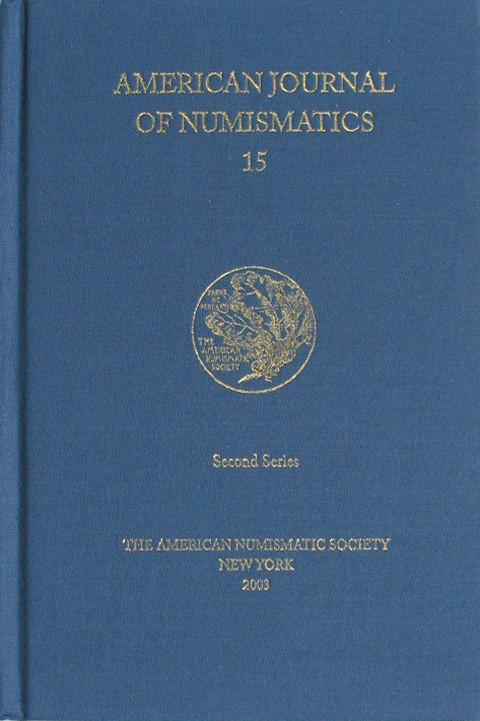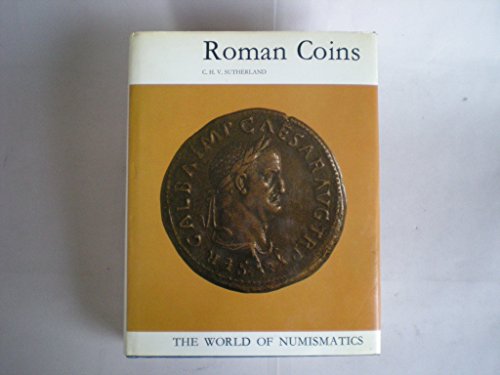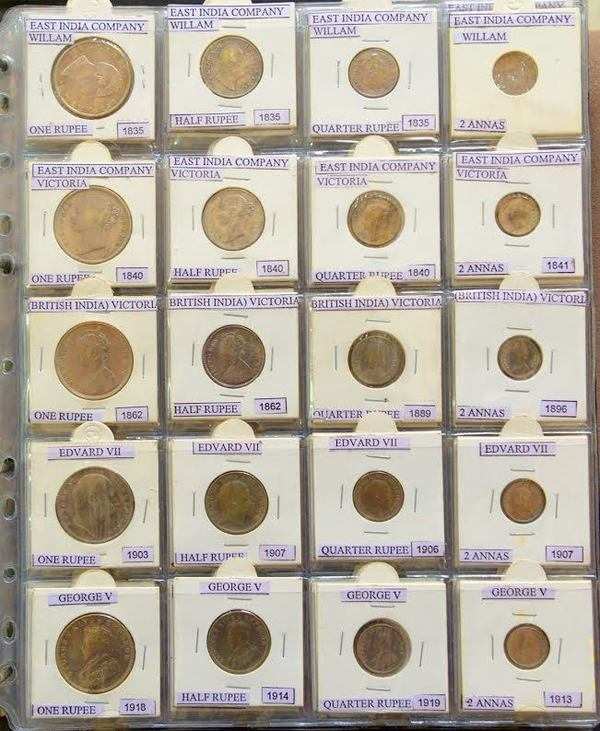Free News For Deciding On Coin Certification And Peso
What Can I Do To Research Numismatics With Respect To Regional And Global Associations By Using An Online Database?This is a structured method to conduct this kind of research. Here is a structured way to conduct such research. JSTOR is a database for academic articles as well as conference proceedings and databases.
Define Research Focus: Specify your research objectives. Are you looking to learn more about the global numismatic association's activities, history regional cooperations conferences, and publications Are you searching for a specific topic in numismatics that is that is discussed in the association? Find out what you're looking for to help guide your research.
Search Method: Search using keywords like "numismatic association", "global numismatics", "regional numismatic societies" and, if appropriate, include the names of particular associations or geographical regions. Utilize advanced filters to filter search results by kind of document, date (such newsletters or conference papers from associations) and geographical scope.
Access data on the numismatic associations of both regions and globally, including their purpose, history and membership. Additionally, you can find details on publications and other activities. Look for details on past and forthcoming workshops, conferences, as well as collaborative research initiatives. Search databases for details on the association's leaders, members, and contact details.
Examine data to determine their the role and impact. Examine how these organizations contribute to the advancement of the field of numismatics, encourage international collaborations, and disseminate research via conferences and publications.
Cross-Referencing: Check your conclusions by cross-referencing information across different sources and databases. Examine the initiatives and activities of different associations to gain a comprehensive view of regional and global developments in the field of numismatics.
Documentation. Document your research findings, citing each source and detailing the methods you used. Note the details of the databases you visited, the search terms used as well as the importance each resource has to the research question you are trying to answer.
Keep Up-to-Date: Numismatic organizations change as time passes, with the publication of new books, conferences and collaborative projects occurring regularly. Keep up to date by visiting the websites of associations newsletters, newsletters and databases for scholarly research.
These steps will enable you to make use of databases to study numismatics as it relates to both regional and global organizations. This will allow you to investigate the organization structure and scholarly activity as well as collaboration efforts that influence the field of numismatics at the global as well as regional scale. See the best gold coins tips for blog advice including coin expo, money, currency appraisal, mint condition, gold, coin storage, bank, banknote news, coin auction, bank and more.

How Can I Find Out More About Numismatics In Relation To Coin Dealers Using A Database?
To conduct research on numismatics related to dealers in coins and dealers, you'll need databases that specialize in the numismatic market and dealer listings. You can also use historical data and trends in the market. To conduct this type of research, here's how to conduct it: Database choice: Pick databases that concentrate on trade and numismatic listings. A few examples are numismatic on-line marketplaces, dealer directories supplied by a numismatic society (such as the Professional Numismatists Guild), database of auction houses and archives from the past.
Define Research Focus: Specify your research objectives. Are you interested to learn about the history and profile of dealers in particular the market, trends in pricing, developments, or the influence that dealers have played on the numismatic collection trend? Find out the key to your search.
Search Strategy: Use keywords like "coin dealers,"" the numismatic market" or "dealer directories" and, if applicable, include names of specific dealers or geographical regions. Make use of advanced search features to sort results by dates, dealer specialties (such as ancient coins, modern coins and rare coins) and types of transactions (auctions, private sales).
Data collection: Information on dealers of coins, such as addresses, names of business as well as specialties and the years of operating. Additionally you can find historical profiles. Information on dealers who have contributed significantly to numismatics and collecting or the scholarly community. Also, find out information on their participation in notable sales and auctions.
Analyse the data and understand the significance of coin sellers in numismatics. Examine how dealers affect market dynamics, create trends in collecting, authenticate and classify coins, and aid in the spread of knowledge in numismatics through publications or educational activities.
Cross-Referencing: Verify your findings by cross-referencing information across numerous directories of dealers, databases auction records, as well as historical archives. This ensures the accuracy and completion of your study. You will gain insights into the various coin dealers' roles in Numismatics.
Documentation: Documentation is essential. Use sources to cite sources and record the methods you've employed. Keep track of information like databases you have accessed as well as your search terms and the relevance of these to your research questions.
Stay up-to-date Keep up-to-date: As the numismatic world changes, so do new auctions, new dealers and market trends. Keep track of updates from numismatic organizations, auction houses, online marketplaces and other sources to stay current on the latest developments in the world of numismatics.
Follow these steps to use databases effectively to explore numismatics and coin dealers. This method allows for a thorough analysis of the historical background as well as market-related influences and scholarly contributions of dealers in the numismatic world and provides valuable insight into the practices of collecting and market dynamics over time. Check out the most popular great post to read for website examples including coin, banknote printing, bullion, numismatics, banknote holder, zloty, banknote expo, banknote marketplace, banknote errors, bullion coins and more.

What Can I Do With A Database To Research Numismatics Regarding Collectors?
Conducting research on numismatics and collectors involves using databases that are focused on collecting interests, collections numismatic societies, as well as collector profiles. Here's a method to conduct such research:Database Selection: Select databases that focus on the collection of numismatics, collector profiles and numismatic societies. Examples include online forums for collectors, numismatic organization websites (like the American Numismatic Association), collector databases, and websites for numismatic research.
Define Research Focus: Specify your research objectives. Do you want to know the interests and motivations of collectors generally and the development of noteworthy collections, the trends in numismatics collecting, the cultural or historical motivations for collecting? Find out the key to your research.
Search Strategy: Add keywords like "numismatic society", "collector profiles", "numismatic collectors" and geographical areas or names of collectors when appropriate. Advanced search options allow you to filter by date, collecting interests (such antique coins or exonumia) as well as membership in numismatic organizations as well as other criteria.
Data Collection: Get information on collectors including their biographies, collecting interests noteworthy acquisitions, as well as contributions to numismatic research or activities in the community. Find information on notable collections, including their creation and distribution, including auction results or catalog entries.
Analysis: Analyze data to better understand motivations and influences of numismatic collection. Discover how collectors influence the market, influence collecting trends and aid in the preservation and dissemination of knowledge about numismatics through publications, exhibitions, or educational initiatives.
Cross-Referencing Verify data by cross-referencing it across auction archives, databases, numismatic magazines, and collector profiles. This will ensure that your research is complete and accurate, and will give you a better understanding of the functions and contributions of collectors in the numismatic field.
Documentation: Documentation is essential. Cite sources and note the methodologies you've employed. Keep track of the specifics of the databases you visited as well as the search terms that you utilized, as well as how each one of them relates to your research question.
Keep up-to-date: Numismatic collection interests and trends change over time. Stay current by checking for updates on forums for collectors, numismatic societies publications, and specialized databases.
Take these steps to efficiently use databases in order to research collectors and numismatics. This method allows for a thorough analysis of the motivations of collectors, their interests, and the contributions of collectors in the numismatic field, providing valuable insights into the historical, cultural and economic facets of the collecting practice. Have a look at the best coin appraisal tips for more examples including banknote book, uncirculated coins, coin blank, proof coins, krona, precious metals, dime, currency exhibition, banknote auction, coin news and more.

What Can I Do With The Database To Look Up Numismatics With Regards To Educational Institutions?
To research numismatics in relation to institutions of higher education, you'll need to use databases that focus on academic programs as well as research projects, museum collections, or publications that are scholarly. Here's a method to conduct such research:Database Choice: Select databases that are specialized in museums, academic institutions, and scholarly publications. Some examples include university catalogs, academic journals databases (like JSTOR), museums databases (such those offered by the numismatic museum) and institutional repositories.
Define Research Focus: Specify your research objectives. Are you interested in learning about numismatics-related courses offered by universities or research conducted by academic institutions? Are interested in collection of numismatics at museums that are associated with educational institutions, or the publications of numismatic scholars? Determine the purpose of your search.
Search Strategies Use keywords to locate relevant publications, such as "numismatics collections of museums at universities," "academic studies in numismatics" etc. You can also include institutions and geographic regions if you like. Utilize advanced search options to filter results according to date and academic disciplines (history archaeology classics) and also by the type of publication.
Data Collection: Access to data on numismatics-related courses and research, museum collections and journals of scholarly research. Find out about course syllabi and research abstracts. Look for museum entries in the catalog and also articles written by researchers or faculty who specialize in numismatics.
Analysis: Analyze your data to gain a better understanding of the research and academic contribution of institutions that teach numismatics. Evaluate the scope of numismatic-related courses as well as multidisciplinary approaches to numismatic research, the significance of museum collections to advance the field of numismatics, and also in contributing to the literature on numismatics.
Cross-Referencing: Verify your findings by cross-referencing information across numerous databases, websites of universities museum collections, as well as academic journals. This will ensure that your research is correct and complete, providing you with a full picture of the role of education in numismatics.
Documentation. Record your findings from research by noting methods and citing all sources. Keep track of details on the databases accessed, search terms used, and the relevance of each source to your research needs.
Stay updated: Numismatic research and educational programs evolve with new courses, research projects and publications. Updates on university websites and announcements from museums as and academic journals will keep you aware of the latest developments in numismatics.
Follow these steps to use databases to gain insight into the world of numismatics and educational institutions. This strategy allows for an extensive examination of the educational possibilities as well as research and scholarly pursuits that influence the research and appreciation of numismatics in the museum and university settings. Take a look at the best coin magazine examples for site examples including antique banknotes, slovak coins, shekel, uncirculated, coin blank, banknote value, coin display, coin authenticity, penny, coin blank and more.

What Can I Do With The Database To Look Up Numismatics With Regards To Networking Opportunities?
In order to research numismatics in terms of networking possibilities, you will need to use databases and platforms which facilitate connections between collectors, dealers and scholars from the numismatic world. Here's a method to conduct such numismatic research:Databases and Platforms: Select databases that focus on the numismatic community. These include websites that are numismatic and online communities (such as CoinTalk or Reddit’s r/Coins) professional networking platforms, and social media groups.
Define Research Focus : Specify networking goals. Are you interested in connecting with collectors to exchange experiences and knowledge, working with dealers to make sales or acquisitions, working with scholars for research, or participating in numismatic-related events and conferences? Clarify the focus of your search to guide you.
Search strategy: Use keywords that represent your interests, such as "numismatics", "coin collectors forums" or "numismatic social networking groups". If you are able you could also add geographical areas and/or specific interests. Use search functionality within platforms to locate relevant forums, groups and events.
Data Collection: Find details on networking opportunities in the numismatic world. Gather details such as group descriptions, membership benefits (such as the ability to attend events discussion, resources, and events), upcoming events (like auctions and conventions, as well as exhibitions) and profiles of influential people or event organizers.
Analysis: Examine the data to identify appropriate networking channels and potential opportunities. Assess the degree of participation in forums and groups, the diversity (collectors/dealers/scholars), the quantity and quality of discussion, and also the possibility for collaborations.
Cross-Referencing: Verify your results by using information from various databases and other sources, like the social media platforms, numismatic society sites, and professional networks. This will help you find comprehensive networking opportunities across different regions and platforms.
Engage: Participate actively in selected networks by asking questions, taking part in discussions, sharing your knowledge and offering your expertise. Meet other collectors to create your network. You can also trade important numismatic information.
Documentation: Record your activities in a systematic manner and note the networks you used as well as the group members, events attended, and contacts made. Track the outcomes and opportunities you gain by networking.
Databases can help you find numismatic opportunities following these steps. This method lets you increase your professional or individual network within the numismatic community by helping collaborations and exchange of knowledge as well as participation in numismatic-related events. View the recommended banknote expo url for website info including coin issue, banknote collection, coin edge, coin magazine, czech coins, pound, austrian coins, banknote errors, coin club, banknote auction and more.
